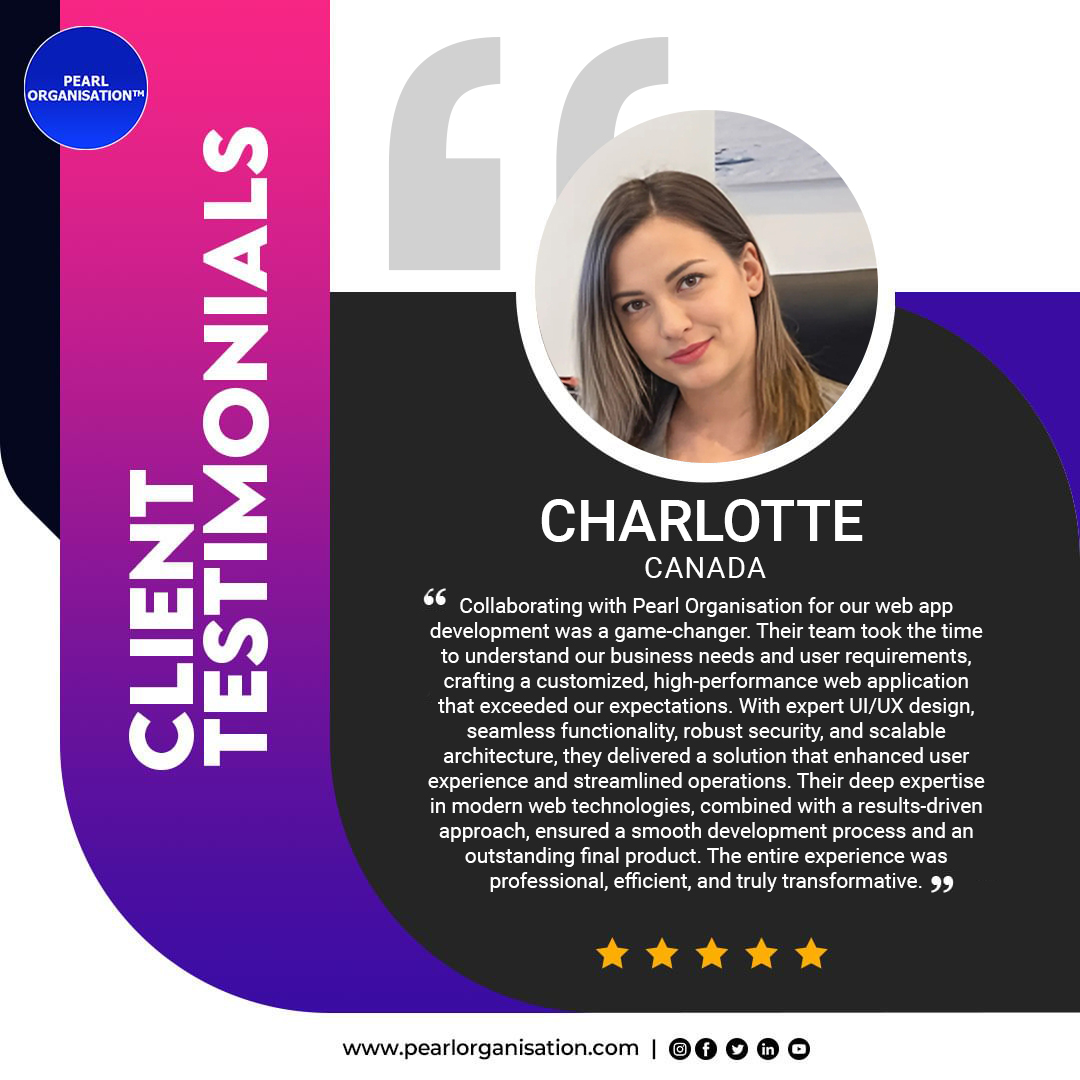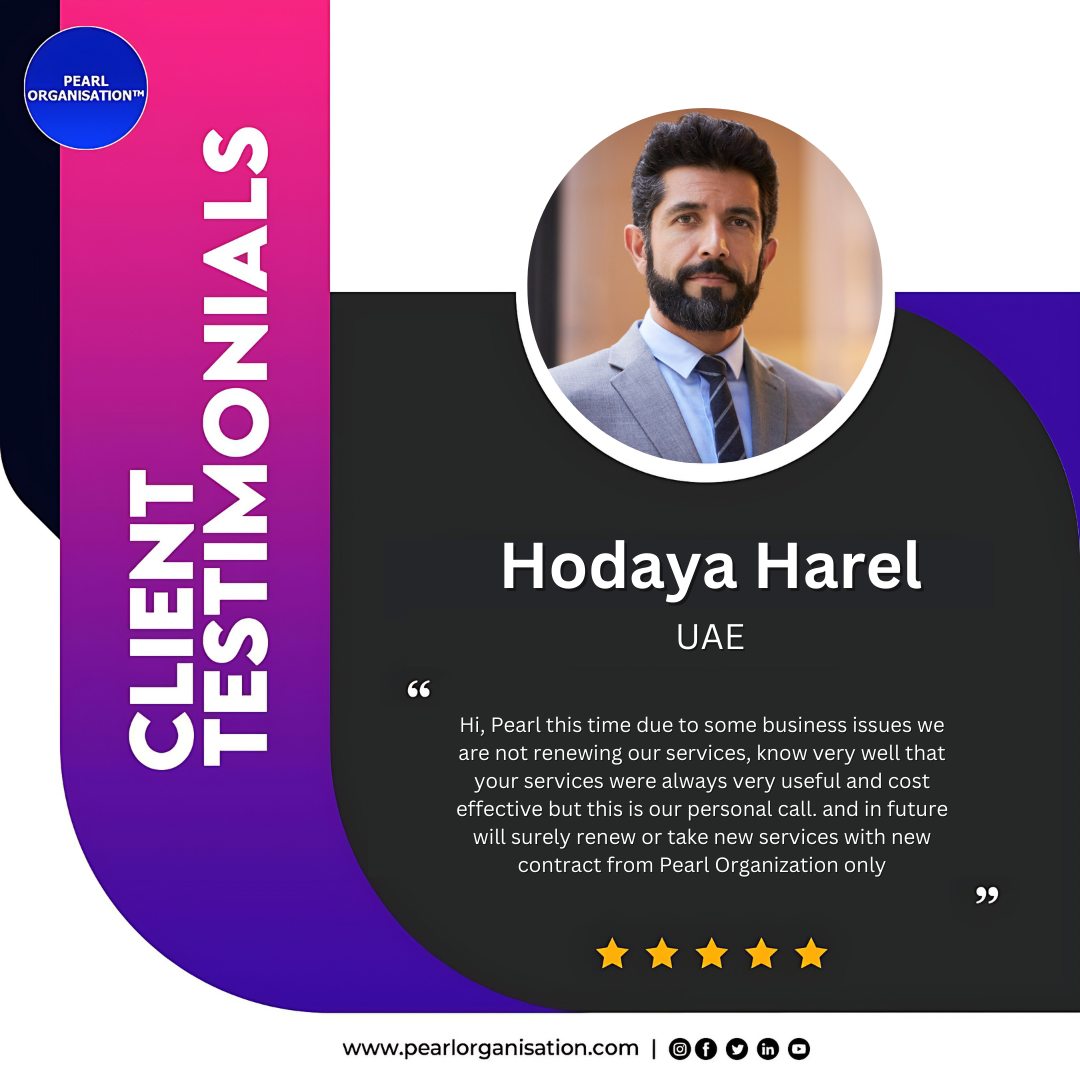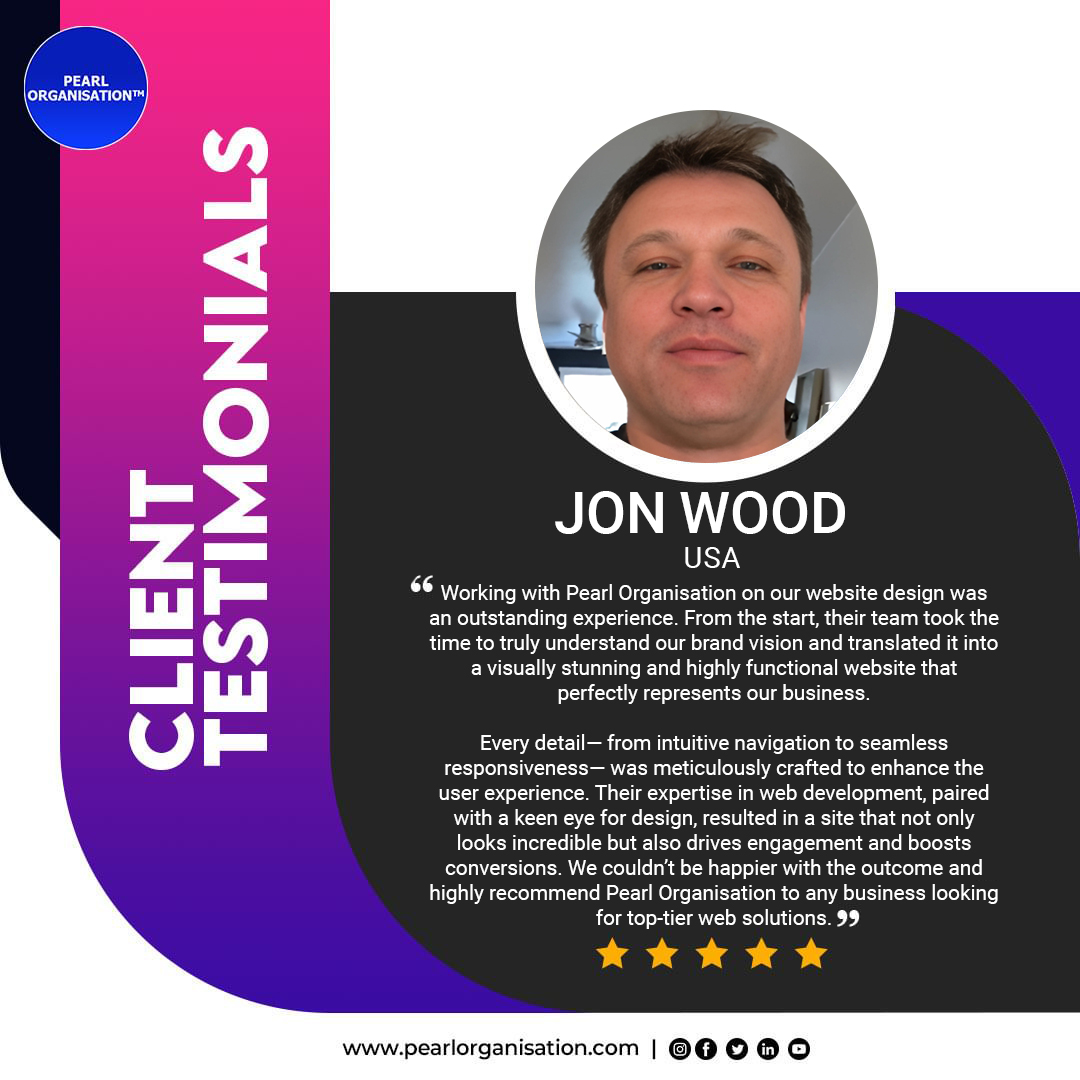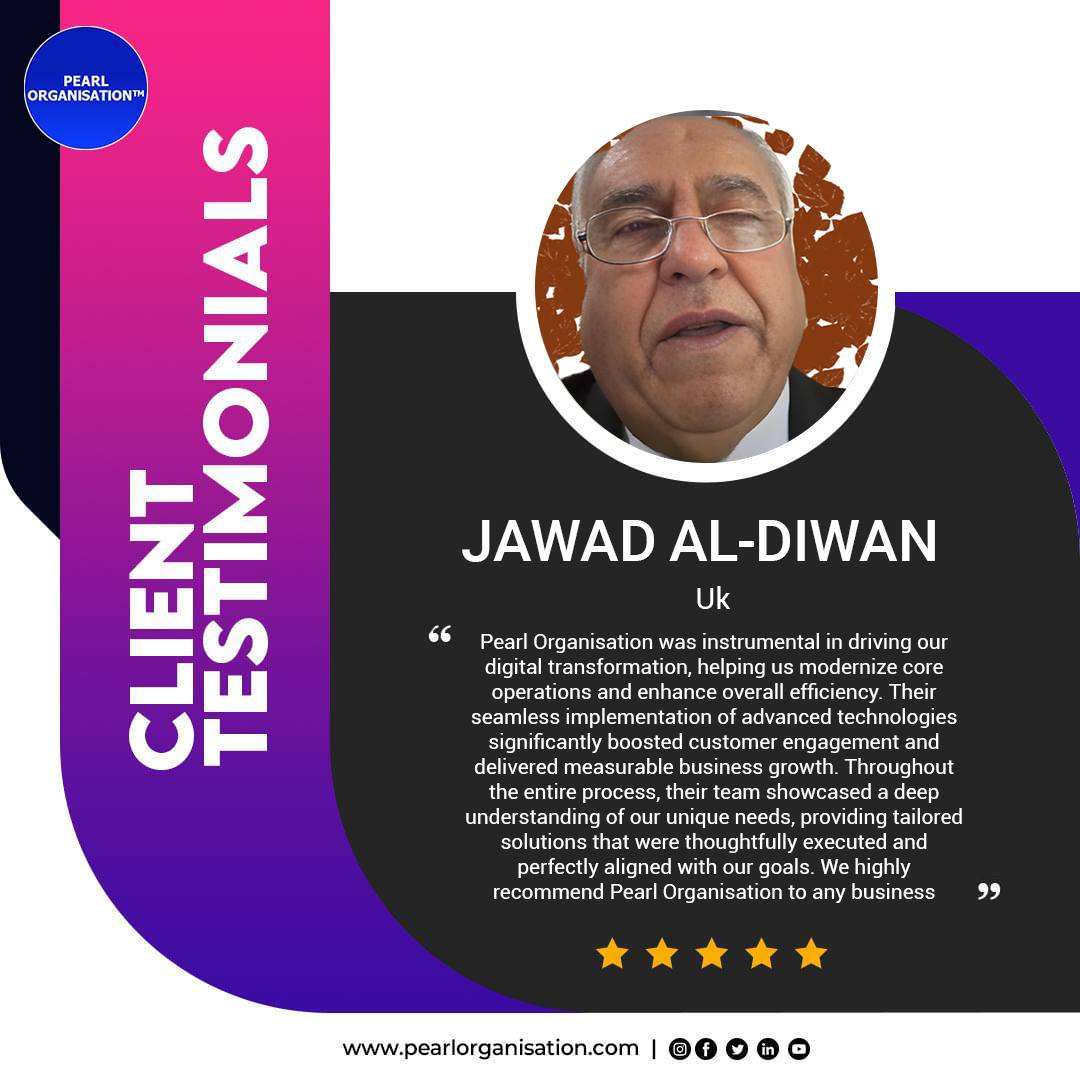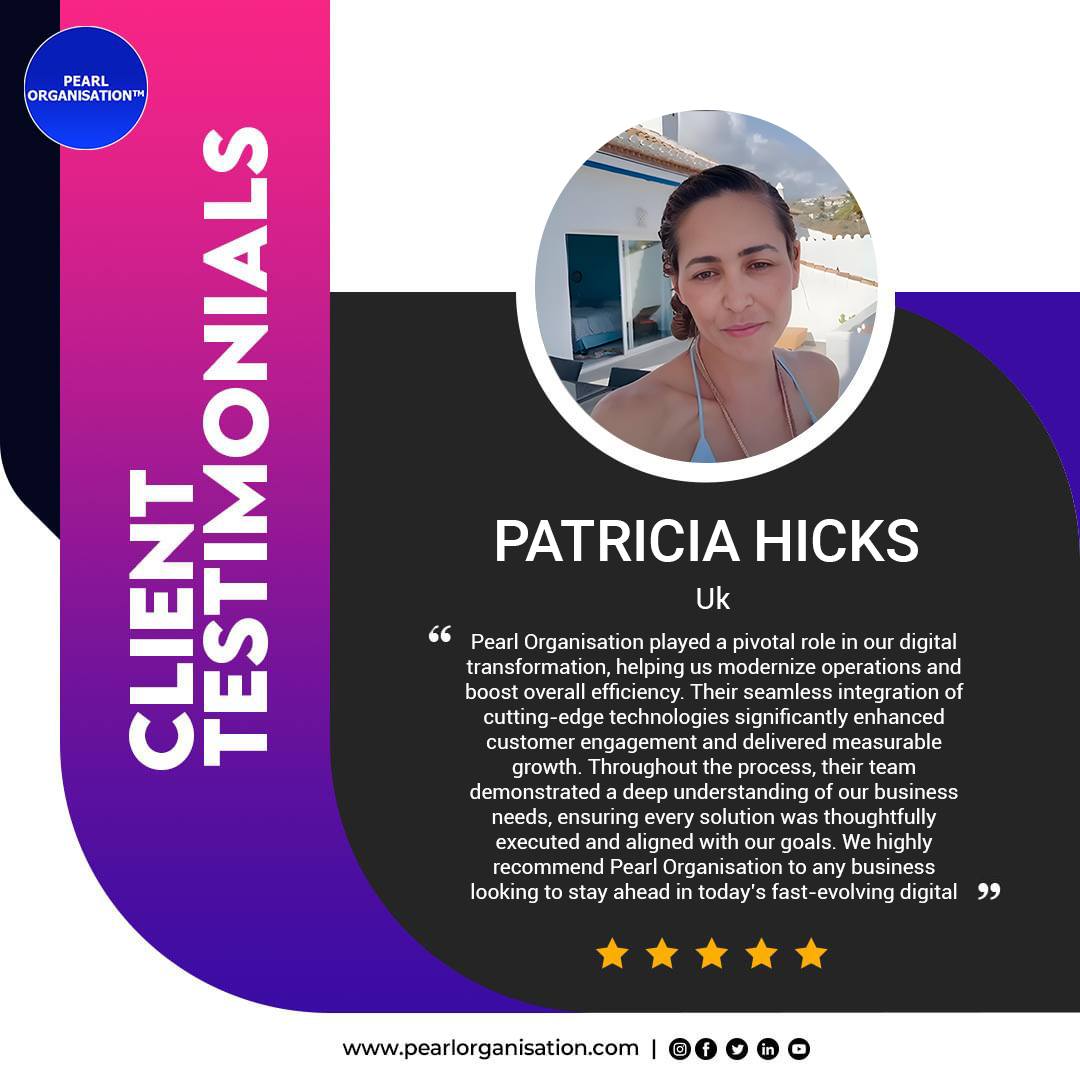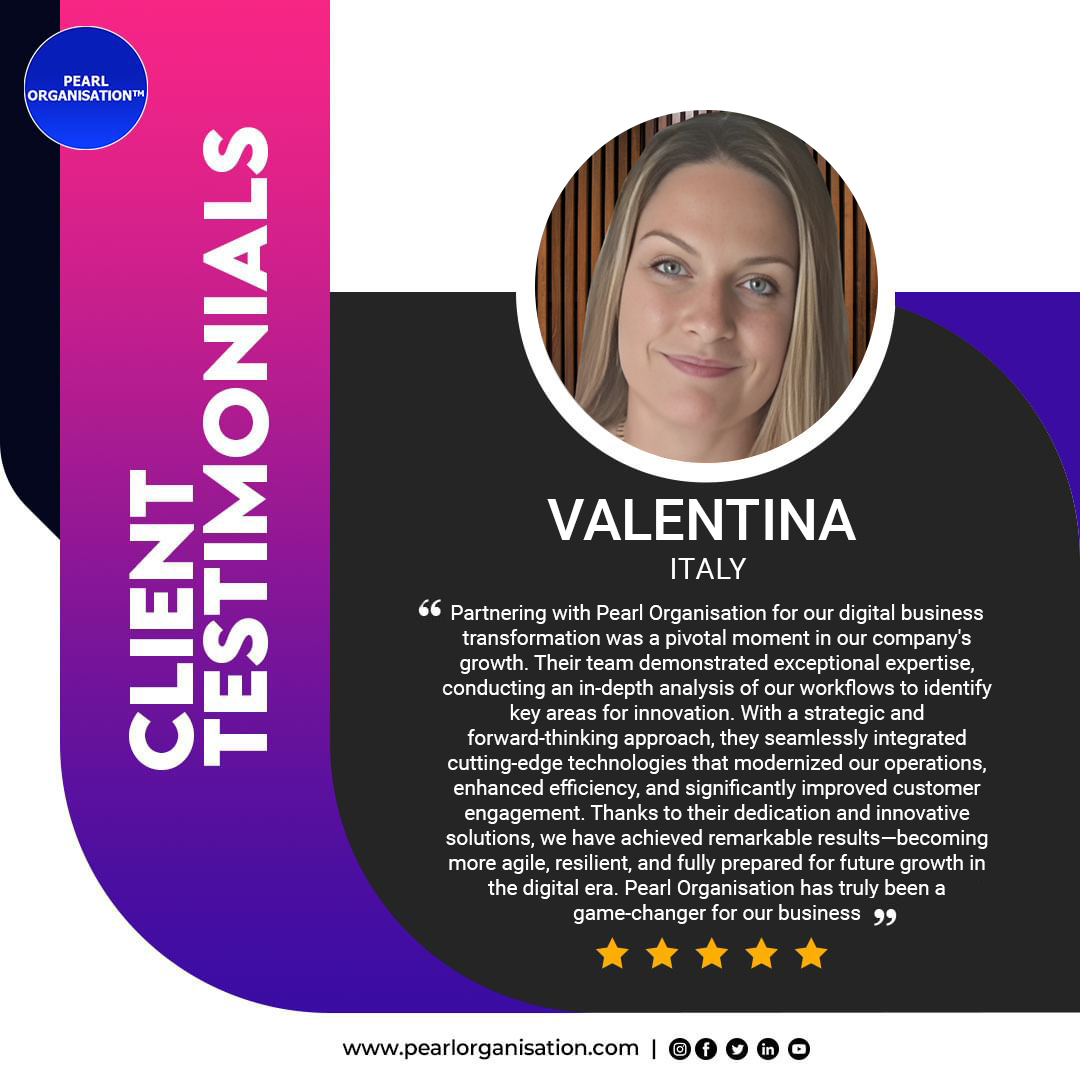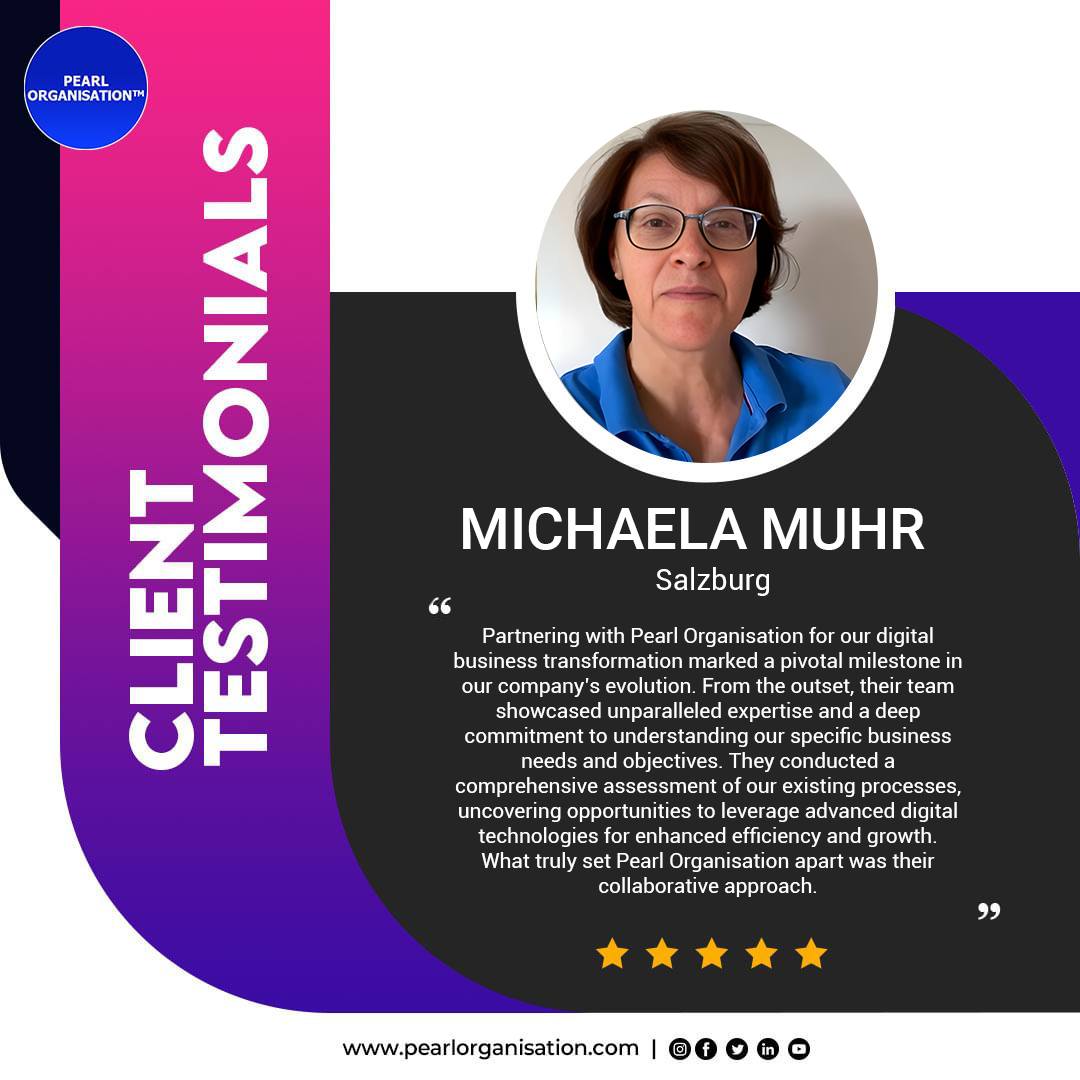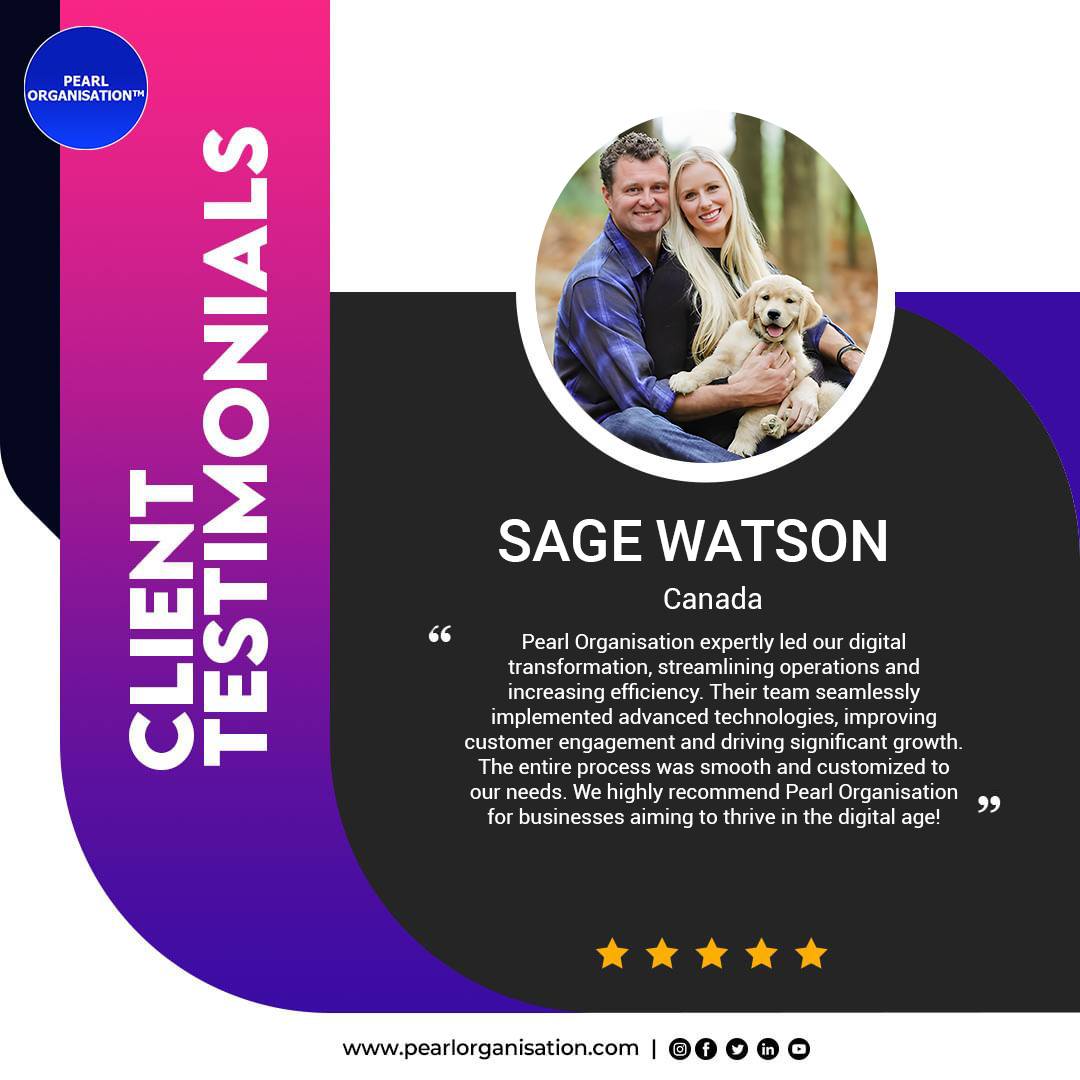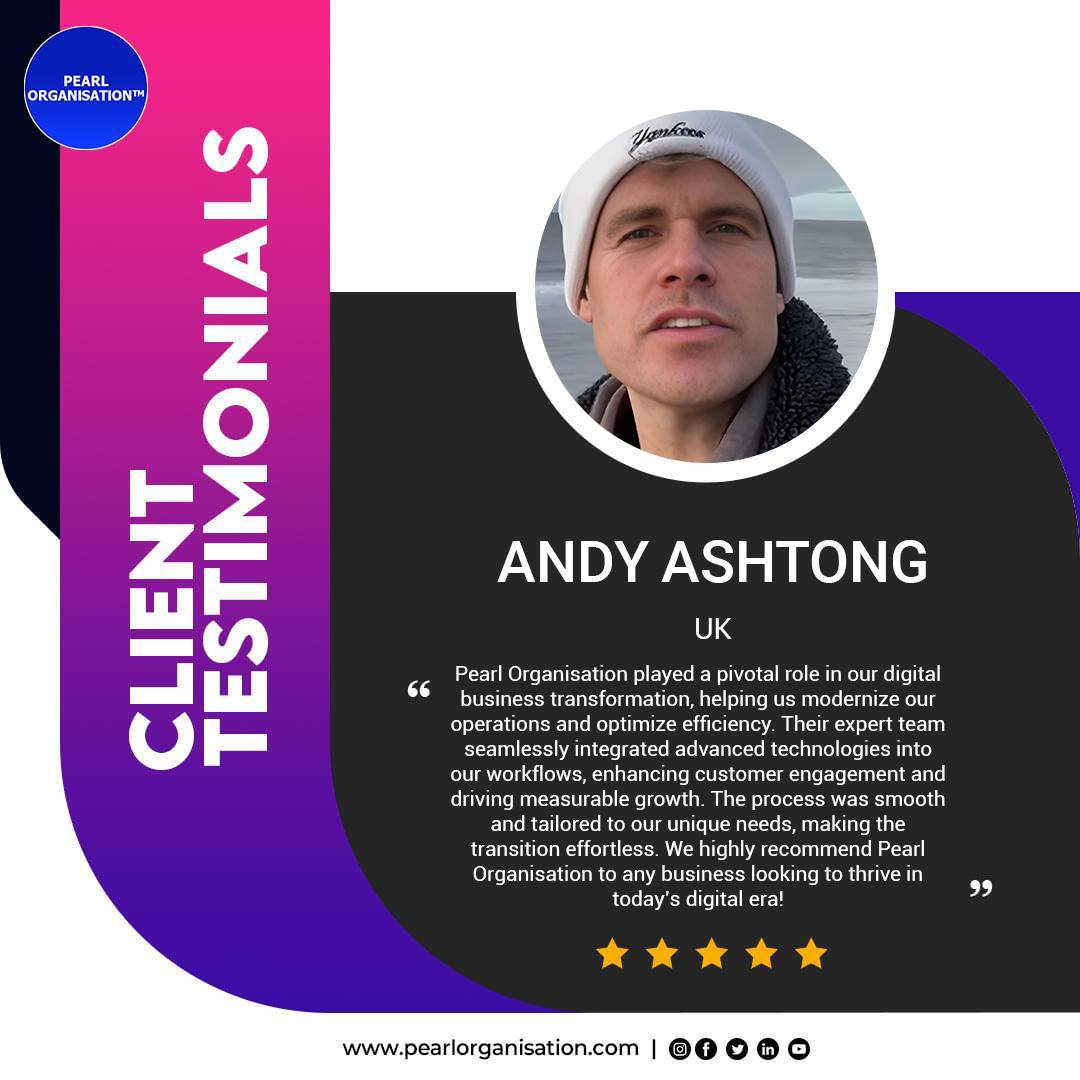How Pearl Organisation Builds Intuitive Interfaces for Complex Workflows
- Jun 11, 2025
- 6 min read

In today’s digital age, user experience defines the success of any product. Whether it’s a SaaS platform, enterprise ERP, eCommerce dashboard, or a mobile application, users expect clean, intuitive, and fast interfaces—even when they’re navigating highly complex workflows behind the scenes. At Pearl Organisation, we specialize in transforming sophisticated processes into seamless digital experiences that feel effortless to the end user.
This article breaks down how Pearl Organisation approaches UI/UX design for enterprise-grade platforms, ensuring both functional depth and user-friendly simplicity.
Understanding the Challenge: Complexity Doesn’t Have to Feel Complicated
Many business applications involve multi-step operations, data-heavy tasks, and logic-driven workflows. These systems must:
Handle large volumes of user input or data
Maintain accuracy and security across roles
Offer flexibility without overwhelming the user
Integrate multiple subsystems (ERP, CRM, Inventory, HRM, etc.)
Most software products fail when their interfaces mirror this internal complexity. Pearl Organisation takes a different path—we translate this logic into user-first journeys.
Our Approach to Designing Intuitive Interfaces for Complex Systems
1. Deep Discovery and Process Mapping
We start every UI/UX engagement with a comprehensive discovery process, including:
By mapping out your workflow architecture, we uncover not just how users interact with your system—but also where friction exists and how it can be removed.
2. Modular Design Systems for Scalability
We use modular design systems to ensure:
Reusable components
Visual consistency
Rapid scaling across dashboards, admin panels, and mobile views
Faster iteration with fewer development bottlenecks
Our design systems are built in Figma or Adobe XD and include:
This enables consistent visual language, faster dev handoffs, and better accessibility compliance.
3. Minimalist Layouts with Maximum Function
For enterprise systems with 50+ screens or layered dashboards, clarity is everything. We apply:
Progressive disclosure: Show essential features first, reveal advanced options contextually
Sticky navbars and breadcrumbs: To reduce cognitive load
Icon-driven sidebars: For quick access and vertical scaling
Micro-interactions: To guide user attention naturally (hover effects, field validation, etc.)
The result? Users accomplish more with fewer clicks—and zero confusion.
4. Role-Based UX Customization
Complex platforms often serve different departments—sales teams, warehouse operators, admins, etc. Each user type needs a tailored view.
We implement role-based UX architecture:
Dashboards change dynamically based on login role
Permissions determine field visibility and action types
Adaptive shortcuts surface most-used features for each user group
This reduces noise and helps each user work faster, safer, and more accurately.
5. Data-Driven UX Decisions
Every design choice is validated using:
Heatmaps (for existing apps)
Prototype A/B testing
Task completion rate measurements
Field focus and abandonment rates
We also integrate Google Analytics, Hotjar, or Mixpanel (depending on platform type) during testing to ensure decisions are backed by real usage data, not assumptions.
6. Mobile-Responsive & App-Ready Layouts
Our team ensures that even the most complex workflows are accessible on mobile devices through:
Adaptive layout strategies
Touch-friendly interfaces
Collapsible menus and step-based wizards
Offline data caching for field workers
Whether it’s a web portal or a companion mobile app, Pearl Organisation makes sure the experience is consistent, elegant, and fast.
7. WCAG Accessibility and Performance Standards
We follow Web Content Accessibility Guidelines (WCAG) for every UI we design:
Proper contrast ratios
Keyboard navigation
Screen reader compatibility
Alt text for icons/images
Plus, we optimize interfaces for performance with:
Lazy loading
SVG-based animations
Minified assets
UI caching for frequent users
This results in fast, inclusive platforms usable by everyone.
Pearl Organisation’s design-first approach has delivered tangible results across industries:
20–40% reduction in onboarding time for ERP users
35% drop in support tickets due to clearer navigation and tooltips
60% faster task completion in internal dashboards
Higher software adoption rates in enterprise rollouts
Better client retention for SaaS platforms with complex setups
Why Pearl Organisation is Your Ideal UI/UX Partner
🧠 Specialization in complex platforms: ERP, CRM, LMS, HRMS, eCommerce admin panels
🎨 Design-to-code consistency: Smooth handoff between design and Laravel/React/Flutter dev teams
🌐 Global delivery with local insights: Serving 150+ countries, including deep experience in AU, US, UAE, and India
📈 ROI-driven design metrics: Focused on performance, engagement, and task success
🔒 Security-conscious interfaces: Designed with permission control and compliance standards
Explore our full suite of UI/UX solutions at:
Final Thought
At Pearl Organisation, we don’t just make software look beautiful—we make it usable, scalable, and intelligent. If you’re building a platform that demands both complexity and clarity, partner with a team that knows how to turn deep logic into delightful user experiences.
Let’s design something exceptional—together.
💬 Frequently Asked Questions (FAQs)
Q1: What does it mean to design intuitive interfaces for complex workflows?
Designing intuitive interfaces means making complicated tasks feel simple and seamless to the user. Even if the system handles multilayered operations—such as data processing, approvals, automation, or cross-department communication—an intuitive UI ensures the user is never overwhelmed. Pearl Organisation achieves this by mapping workflows, eliminating redundancies, and offering context-driven layouts that adapt to the user's role and task.
Q2: How does Pearl Organisation simplify complex enterprise systems through UI/UX?
Pearl Organisation uses principles like modular design, progressive disclosure, and visual hierarchy to simplify the user's journey. We break down complex workflows into manageable steps, offer intelligent navigation, and personalize dashboards for different user roles. This ensures that even the most data-heavy systems are easy to navigate, reducing learning curves and boosting productivity.
Q3: What industries does Pearl Organisation serve with complex interface design?
We serve a wide range of industries including:
Each design is tailored to the specific workflows and regulatory requirements of the industry.
Q4: How does Pearl Organisation ensure UI/UX scalability for growing platforms?
We create component-based design systems using tools like Figma, ensuring reusability, consistency, and scalability. Whether your application grows from 10 screens to 100, the design language remains cohesive and expandable. Our development teams also build responsive, mobile-ready layouts that can evolve with feature expansion.
Q5: Can Pearl Organisation handle UI/UX design for legacy software upgrades?
Yes. We specialize in modernizing legacy systems by auditing current UX flows, understanding business constraints, and implementing modern, user-friendly designs without disrupting the underlying functionality. We can progressively redesign platforms while maintaining active user engagement and system stability.
Q6: What tools and methodologies are used during the design process?
Our UI/UX teams use industry-standard tools and frameworks such as:
We also conduct usability testing and incorporate A/B test results into final iterations.
Q7: How do you ensure accessibility in complex user interfaces?
Pearl Organisation designs with WCAG 2.1 compliance in mind:
High contrast text and background
Keyboard navigation support
Alt text for icons and images
Responsive design for screen readers
Clear focus indicators and semantic HTML (when applicable)
This ensures our platforms are usable for all users, including those with visual or motor impairments.
Q8: Do you offer mobile-responsive UI/UX for complex workflows?
Absolutely. All our interfaces are mobile-optimized using adaptive layout strategies. For mobile-heavy teams (e.g., field agents, logistics), we design specifically with:
Step-based wizards
Collapsible menus
Click/tap-friendly components
Data-saving and offline mode (if applicable)
Q9: How do you personalize dashboards and interfaces based on user roles?
We implement role-based UX architecture, meaning the interface adapts depending on whether the user is a manager, staff, technician, or admin. Each role sees:
Only the relevant modules
Custom action buttons
Filters and reports based on their responsibilities
This avoids visual clutter and increases efficiency.
Q10: What makes Pearl Organisation stand out as a UI/UX design company in India?
Pearl Organisation stands out due to:
Deep expertise in designing for complex enterprise-grade systems
In-house teams for both design and development, ensuring smooth execution
Strong focus on business goals, not just pretty visuals
Experience across 150+ global clients and multiple industries
We don’t just design interfaces—we build experiences that make technology feel effortless.




























